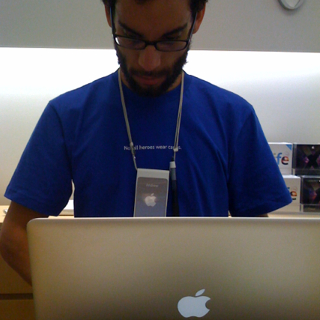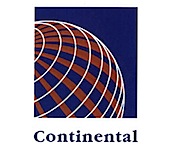Yesterday was Media Day at US Airways. And a fine time was had by all.
Really.
Considering that the airline did not have any major news to release, the day was nonetheless helpful. Or as one newbie to the event told me late yesterday afternoon, “I’m glad I came. It helped me to understand where the airline sees itself and the niche it occupies much better.”
The format of the day was much the same as it always is. The day opens with remarks by CEO Doug Parker, which are then followed by presentations by Scott Kirby, President, Robert Isom, COO, Derek Kerr, CFO and C.A. Howlett, the airline’s government affairs VP. During lunch, all the top execs of the company then make themselves available for questions and answers from the floor.
After this — the airline had a panel of those staffers who were most directly associated with the airline’s response to the Flight 1549 crash landing into the Hudson River on January 15th. It was the perfect way to end the day as everyone involved, including Parker, gave their accounts of where they were and what they did after the news hit that the aircraft was in the water. Most interesting were the stories that we had not heard before — such as the fact that Captain Sullenberger was initially told by the company’s representative at the ops center when he called in that he would have to call back — the operations center was really busy because there was a plane down. Sully managed to convince them that he was well aware of that fact.
I’ll talk more about Doug Parker’s opening comments in this week’s PBB, but the Cliff’s Notes version would be that airline managements need to stop comparing the financial performance of their respective airline to industry peers and start managing airlines like any other profitable business.
Of course, the fact that Congress tends to look at the airline industry as a type of “public good” and not an industry that is run for the benefit of shareholders is a big problem. He talked a great deal about this, and I agree, if the airlines are going to be deregulated, then they need to be truly deregulated. They still aren’t, in a lot of ways.
As for the airline itself, it estimates that it will make between $400 and $500 million this year in ancillary revenues, and no, it has not been able to detect any type of “booking away” as a result of their additional baggage fees. The airline also said that this year, any new ancillary revenue changes will probably only be made in the area of seat selection — as the airline continues to work on new technology that will allow passengers even more choice, in terms of price and seat selection.
The big story of the day was the airline’s quite remarkable turnaround in operations in 2008. We’re talking time of departure, time of arrival, lost bags, all those things. We told you guys last year that we liked this guy Robert Isom. And this year the numbers proved that the new COO of the company knows his stuff.
For 2009, the plan is to keep improving these operational aspects of the airline — with more focus being put on those aspects of the customer experience that are direct — web site ease of use, ease of rebooking, those types of things.
The most interesting thing I took from Isom’s talk this year? I remember at one point in 2008, there was some grousing from other carriers that the only reason US Airways was doing so much better in the DOT statistics was because the airline had padded their block hours. Even US Airways’ pilots jumped on the bandwagon, accusing the airline of being “inefficient.”
Yesterday, as Robert showed us graphically, while yes, the airline did initially pad the block hours a bit earlier in the year — the airline actually not only went back to the “pre-padded” schedule in the last part of 2008, but it even cut block hours to a level lower than when the airline started 2008. And the airline still managed to post very respectable operational numbers.
Oh, and finally — the really important news.
Monday night the airline held a dinner for those of us in town for the event at Cadillac Ranch in Tempe. Cadillac Ranch has a mechanical bull. As I forecast in this week’s PBB, yes, Elise Eberwein, SVP of Communications and People at the airline rode the bull. Yes, Scott Kirby, President, rode the bull.
But surprisingly, neither won the contest.
Al Hemenway — the airline’s VP of Labor Relations took the prize. In belted khaki chinos no less.
I was impressed.
Even after repeated second and third attempts by Elise and Scott, and other attempts by media folks and US employees, Al hung on to win the prize.
Only appropriate that he persevered, considering he deals with labor relations, right?
I’ll post some pictures later. Need to get out of here. Have to go check in over at the Biltmore for the Symposium. Talk to you later.
 How many of you have ever found yourself in a position where some form of technology failed you? A piece of software….a computer…. A gadget of some sort?
How many of you have ever found yourself in a position where some form of technology failed you? A piece of software….a computer…. A gadget of some sort?